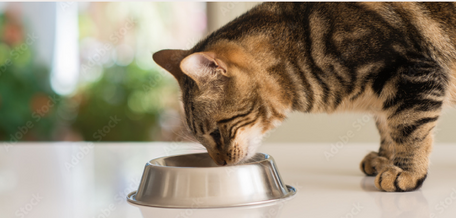
Cats are known for being very picky eaters, making mealtime challenging for pet owners. One solution to this problem is rabbits as cat food, which have a unique flavor that many finicky cats find irresistible. BJ's rabbit cat food is a great option for those looking to satisfy their cat's picky palate.
Key Takeaways
-
Cats are naturally selective with their food due to their evolutionary history.
-
Texture and flavor are crucial in determining a cat's food preferences.
-
Rabbit as cat food has a mild yet rich taste that cats love.
-
Rabbit meat mimics the natural prey of cats, making it very appealing to them.
-
BJ's rabbit cat food offers high-quality, easily digestible protein that is ideal for picky eaters.
Introduction
Cats are known for being very selective about their food. This can be a big challenge for pet owners who want to make sure their furry friends are eating well. Pet pickiness is a common issue that many cat owners face, making mealtime a stressful event.
One great solution to this problem is rabbits. Rabbit meat has a unique flavor profile that many cats find irresistible. It's mild yet rich, making it a perfect choice for finicky eaters. BJ's rabbit cat food stands out as an excellent option, offering high-quality ingredients that appeal to even the most selective cats.
If you're struggling with a picky eater, trying out rabbit cat food could be the answer you've been looking for. BJ's rabbit cat food not only tastes great but also provides the nutrition your cat needs.
Why Cats Are Picky Eaters?

Cats' Natural Preferences
Cats are known for being selective eaters, and this behavior has deep evolutionary roots. In the wild, cats are obligate carnivores, meaning their diet consists mainly of meat. This natural preference for meat influences their food choices even as domesticated pets. Understanding these natural preferences can help cat owners make better food choices for their pets.
Sensitivity to Texture and Flavor
Cats are not just picky about what they eat but also how it feels and tastes. The texture and flavor of food play a significant role in their eating habits. Some cats prefer crunchy kibble, while others might favor soft, wet food. The right combination of texture and flavor can make a big difference in whether a cat will eat a particular food or not.
Cats often act like fine dining felines, showing a strong preference for certain textures and flavors. This sensitivity can make feeding them a bit of a challenge, but it also means that finding the right food can lead to a very happy cat.
By understanding these aspects of feline behavior, you can better cater to your cat's dietary needs and preferences.
The Flavor Appeal of Rabbits
Unique Flavor Profile
Rabbit as a cat food has a mild yet rich taste that cats find irresistible. The unique flavor of rabbit meat stands out from other proteins, making it a favorite among finicky eaters. This distinct taste can be especially appealing to cats who are tired of the usual chicken or fish flavors.
Natural Scent and Texture
The natural scent and tender texture of rabbit meat closely mimic a cat's natural prey. This makes rabbits not only delicious but also enticing for cats. The aroma and feel of the meat can trigger a cat's hunting instincts, making mealtime more enjoyable for them.
Rabbit as a cat food is a great choice for cats who are picky eaters. Its unique flavor and texture can make even the fussiest cats excited about their meals.
Nutritional Benefits of Rabbit for Picky Eaters

High-Quality Protein
Rabbit meat is an excellent source of lean, high-quality protein. This is crucial for cats, as they are obligate carnivores and need protein to thrive. Rabbit provides the essential amino acids that help maintain muscle mass and overall health. This makes it a fantastic option for picky eaters who might turn their noses up at other protein sources.
Easy to Digest
One of the standout features of rabbit meat is its digestibility. Many cats with sensitive stomachs find rabbit easier to digest compared to other meats. This is because rabbit meat is low in fat and has a simple protein structure. For fussy cats with digestive issues, rabbit can be a gentle and effective solution.
BJ's Raw Pet Food's Rabbit Cat Food
BJ's rabbit cat food stands out in the market due to its nutritional superiority. It is nutritionally balanced with synthetic vitamins and minerals, and it is free from artificial colors, flavors, and preservatives. Here’s a quick look at its guaranteed analysis:
|
Nutrient |
Percentage |
|---|---|
|
Crude Protein |
40.5% |
|
Crude Fat |
22.5% |
|
Crude Fiber |
3% |
|
Moisture |
9% |
BJ's rabbit cat food is also coated with freeze-dried rabbit for added flavor, making it even more appealing to picky eaters.
In summary, rabbit as cat food offers high-quality protein and is easy to digest, making it an excellent choice for finicky felines. BJ's rabbit cat food, in particular, provides a balanced and nutritious option that can satisfy even the most selective cats.
Rabbit as a Solution for Picky Eaters with Food Allergies

Novel Protein for Cats with Allergies
Cats can develop allergies to common proteins like chicken, beef, and fish. When this happens, finding a suitable diet becomes a challenge. Rabbit is a novel protein source that many cats haven't been exposed to, making it an excellent option for those with food allergies. Switching to a rabbit-based diet can help reduce allergic reactions and improve your cat's overall health.
Success Stories of BJ's Raw Pet Food's Rabbit Cat Food
Many cat owners have seen remarkable improvements after switching to BJ's rabbit cat food. Here are a few testimonials:
-
Margo MacLean: "Our cat has poultry allergies that caused excessive licking and chewing. We switched to rabbit food, and the symptoms disappeared."
-
Erica Phillips: "My cats have multiple food allergies, and rabbit is one of the few things they can eat. Their health has improved significantly."
-
Stephanie: "My kitty is extremely picky and allergic to many proteins. She loves BJ's rabbit food and eats it like she hasn't eaten in a month!"
Rabbit as cat food is not just a tasty option for picky eaters; it's also a lifesaver for cats with food allergies. By providing a novel protein source, it helps reduce allergic reactions and keeps your feline friend healthy and happy.
Conclusion
In summary, rabbit as cat food is an excellent choice for picky eaters. Its unique flavor profile, natural scent, and tender texture make it highly appealing to cats. Additionally, rabbit provides high-quality protein and is easy to digest, making it ideal for cats with sensitivities. For those dealing with food allergies, rabbit serves as a novel protein source that can help reduce allergic reactions.
If you have a finicky feline, consider trying BJ's rabbit cat food. Your cat might just love it!
In conclusion, we hope you found this information helpful for your pet's nutrition. If you're ready to give your furry friend the best, visit our website to explore our range of raw pet food options. Your pet deserves the best, and we're here to help you provide it.
Frequently Asked Questions
What makes rabbit a good choice for picky eaters?
Rabbit as a cat food has a unique flavor and texture that many cats find irresistible. It's also a novel protein, meaning many cats haven't developed sensitivities to it.
Is rabbit suitable for cats with food allergies?
Yes, rabbit is a novel protein source that can help reduce allergic reactions in cats with food sensitivities.
What are the nutritional benefits of rabbit as cat food?
Rabbit as cat food is high in lean protein, easy to digest, and gentle on a cat's stomach, making it ideal for picky eaters and cats with digestive issues.
How can I transition my cat to rabbits?
Gradually mix the rabbit cat food with your cat's current food over a week or two, increasing the amount of rabbit food each day until it's the only food given.
Can rabbit help with my cat's digestive problems?
Yes, rabbit is easy to digest and can be a good option for cats with sensitive stomachs or digestive issues.
Where can I buy BJ's rabbit cat food?
You can purchase BJ's rabbit cat food online or at select pet stores. Check their website for more details on availability.




















